#Korean learning
Explore tagged Tumblr posts
Text
KOREAN STUDY DIARY
02/07/25
i just wrote recent diary entries/summaries/vocab from yt video or webtoon into my notebook
i want to look up different sentences for the vocabulary. and find more topic related vocabulary so i can write another pragraphes about the same topic with more vocabulary
that’s enough “work” for a few weeks even? i swore i would slow down, not overdo it and no longer rush. so i’ll take my time with this material. maybe i record myself reading it outloud?
xoxo,
A.


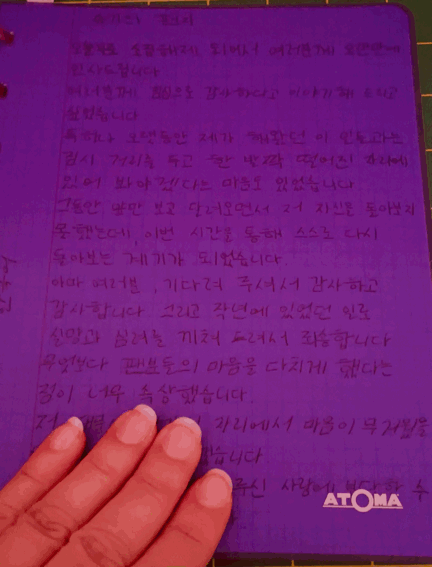
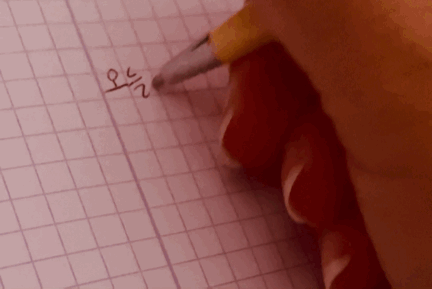

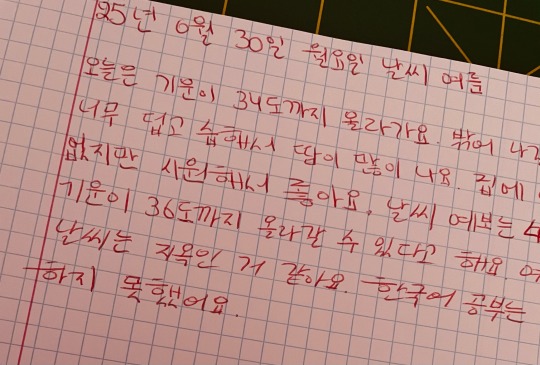
#language learning#polyglot#self study#multilingual#langblog#langblr#learning korean#languages#languagegarden#study blog#language blog#studytblr#study diary#studyblr#study routine#study with me#no pressure
3 notes
·
View notes
Text
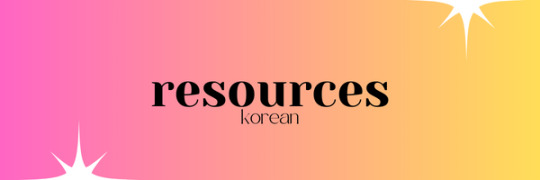
korean learning resources !
hello, my name is ri (ree) and i've been learning korean for almost 2 years. when i started learning korean, i tried using almost every source i could find and watched a whole lot of youtube videos.
whether you have just started learning the language, or have been a learner for a couple of months, here's a list of resources you can use!
﹡﹡ ʳᵉˢᵒᵘʳᶜᵉˢ ʷⁱᵗʰ ᵃ ʰᵉᵃʳᵗ ᵃʳᵉ ᵒⁿᵉˢ ⁱ ʰⁱᵍʰˡʸ ʳᵉᶜᵒᵐᵐᵉⁿᵈ

HANGUL VIDEOS:
♡ miss vicky hangul in 30 minutes
♡ all about batchim (part 1)
♡ all about batchim (part 2)
♡ all about batchim (part 3)
learn hangul in 90 minutes (start to finish)

LEARNING SITES:
♡ talk to me in korean: provides a grammar course & other learning materials.
how to study korean: provides free grammar with vocab lists with pronounciation.
loecsen: phrases & vocabulary with pronounciation.
♡ learnkorean: provides a course, grammar lessons, flashcards, worksheets & more all for free!

YOUTUBE CHANNELS:
seemile korean: topik help
♡ choisusu: learn korean vlog, podcasts & more
♡ conversational korean: vocabulary videos, lessons, listening practice tests & more!
♡ banzi's secret diary: cute cartoon for listening practice! (no subs for a challenge)
learn korean with jadoo: another cute cartoon with english & korean subtitles.

READING PRACTICE:
brunch story: stories by users in korean. (for more advanced learners)
♡ korean comics: one comic in korean & english with small vocab list!
do you want to go eat?: a cute & simple webtoon comic
♡ story korean: stories with vocabulary & grammar tips.

APPS:
mirinae: korean sentence analyzer & more (android & ios)
audioclip: korean podcast app for listening practice (android & ios)
todaii easy korean: learn koran by reading & listening to news (android & ios)
vocat: create your own vocabulary lists (android & ios)
podo korean: grammar lessons, vocabulary, reading & listening (andoid & ios) ** for vocab only download podo words
eggbun korean: learn korean with a chatbot tutor names lanny! (android & ios)
drops: korean vocabulary apps (android & ios)

PODCASTS:
cozy story time in korean
♡ choisusu
♡ tayoni's korean podcast
korean story

hopefully this is useful to you and good luck with your learning journery! and let me know if any of the links aren't working!
you can follow me on my instagram: wrldwithri ✨ to follow me along my language learning journey.
#📎 sites#langblr#language learning#learning languages#learning korean#korean#studyblr#studygram#study korean#korean studyblr#korean resources#study resources#korean learning#learn korean
777 notes
·
View notes
Text
Free Korean Learning Courses! : Part 1

-> These are some free resources I used or heard about a lot to learn Korean and what they include, there's probably way more! I'll make more parts in the future. There's also ratings and pesonal notes about each one, but again they're 'personal' so it might not be the same for everyone! That's why you should always try it yourself first.
-> These resources are or were fully free when I used them, if anything changed and they're no longer free I do not take any responsibility for possible accidental purchases, I recommend to always check first before processing with it.
Here we go:
GoodJobKorean — Full free Hangul Course, 12 Lessons, Videos (with pronunciation, etc) + Pdf Practice sheets (with some vocabulary) + Quizes to see if you understood each lesson.
Rating: 100/10 I tried and loved it, easy to understand and explained nicely. Really useful for beginners learning hangul!
A/N: You may have to rebuy it after a month (not sure because I finished it in less then a month and never logged back in) but It's still free (if not you can always just make another account to get it free again)
GoldenKeyKorean: Free Hangul course, pronunciation + 2H long master course (advanced and basic levels) with 2 pdf books
Rating: I personally did not try this one, but I'm pretty sure it's fully free (at least that's what I've seen), but he often does limited editions/limited time special free courses so it's better to check if the offer is still active and follow his instagram for future updates and courses.
Now Korean Class: Fully free 9 Korean courses with different levels (1-9) with multiple videos for each, explains sentence structures, grammar, counters, numbers, and way more.
Rating: 100/10, It really is free, multiple levels, sooo many different things to learn I absolutely loved it!!
A/N: You just have to rebuy it after a month but I'm pretty sure it's still free (if not you can always just make another account to get it free again). I recently lost acess to it, idk why I think my phone is lagging... It tells me something went wrong to try again later, lol, just in case some content changed etc I wouldn't know.
Koldoristudy: 3 different Free Korean PDF study sheets, 1 Hangul, 1 Vocabulary and 1 winter study, includes Grammar, stroke order guides and syllable blocks,
Rating: 10/10 Loved it, I thought it would be just some pdf files to boringly write hangul/words but It's actually way more! it explains grammar and some useful language rules!
Talk to me in korean: Multiple free podcasts on different platforms + PDF with grammar and vocabulary explained for different levels of learners, 7 days free trial with possible cancelation
Rating: 9/10 It's really good, I'm just not a big fan of podcasts as I have a short attention spawn LOL. I personally didn't try the 7-days free trial but they do have LOTS of different lessons and videos that seem to be amazing and useful.
A/N: personally I find their website really confusing, to make things easier you can try things like just typing "Talk To me In korean (Pdf level _)" on google and the first link should be the free pdf file, etc etc.
Loescen Learn Korean Website: Free Interactive web-based learning, important vocabulary, pronunciation beginner to intermediate level, basic conversation courses and dialogues
Rating: 8/10, so good!! It surprised me, I just wish it went more in deep about things like sentence structures and grammar instead of blindly learning dialogue lines or words without breaking them into steps for deeper understanding of the language.
A/N: works for other languages too!!
Live Lingua: Multiple free ebooks and audio files lessons, grammar, vocabulary, hangul, etc, beginner to advanced,
Rating: 9/10 Covers up a lot of different things like I said, grammar, vocabulary, etc etc, but AGAIN each course covers many subjects and it quickly feels heavy and too long/complicated/takes too much time (personally for me, as an individual with ADHD)
How to study korean: LOTS of grammar and vocabulary, beginners to advanced, multiple lessons, linked YT videos to reinforce lessons, PDFs, etc
Rating: 100/10 explains really well, SO MUCH STUFF, different levels, it's really awesome! Lessons are available in multiple languages and not just English!! However again I find it a bit intimidating as it really has LOTS of things to learn which make it seem hard and heavy...
A/N: Personally I find the website complicated to navigate 😭 just type "how to study korean lesson _" for easier access if you want and It should be the top results
Udemy TOPIK grammar through 100 patters: TOPIK vocabulary, grammar and conversations, 100 grammatical patters koreans use a lot
Rating: 8/10 really good, well explained, but again personally it feels pretty heavy and long, videos in Korean with English subtitles, however there are no English subtitles for "example sentences" which sucks, you need to know some basic vocabulary to really understand the example sentences used there.
Tomi Korean: Free PDF with 430 basic korean vocabulary (words, verbs, nouns, adjectives, etc) with audio files, free PDF Worksheet for hangul learning
Rating: 8/0 Love it, really nice for useful vocabulary but you'll have to willingly study the words cause the pdf only makes you write it once and it's really just Korean-English translations, but it has images so its good for visual learners too! Personally I also found it takes a lot of storage to download everything lol.
A/N: I did not check the hangul worksheet as I can already write and read hangul but little personal opinion/tip; I think GoodJobKorean is the best option to learn Hangul here, specially compared to this one. Yes I did not try this Hangul Worksheet but I believe GoodJobKorean offers more variated content and help (videos, quizes, etc) than what a PDF sheet has to offer, that's my opinion.
That's all so far!
Many of these courses have social media accounts where they post different content and tricks to learn, I'll be making a post about those in the future too!!
If anything changed since I first used these resources or if there's any misinformation in this post, please let me know!
#korean langblr#korean learning#korean language#korean#korean lesson#korean course#multilingual#language self teaching#languages self learning#language study#language learning#language#langblr#language lessons#language course#new language#self taught#free studies#free courses#free korean courses#free language courses#hangul#hanguel#language is fun#korean alphabet#Free Korean Learning courses#studyblr#study motivation#study blog
88 notes
·
View notes
Text
SINO KOREAN NUMBERS PT.2
2024년 8월 11일
안녕하세요 여러분!
As promise, second part is here!
Telephone numbers (05860791834)
Metro/Bus lines (Line 8 / Bus 576)
Height/Weight (150cm and 50kg)
Years (2024, 2000, etc)
Minutes and seconds (45min and 20 seconds)
Prices (5,000 wons)
Directions (Sherman, 42 Wallaby Way, Sydney)
HOW TO SAY PHONE NUMBERS:
Let’s take ( 05860791834 ) as our example.
You have to say number by number: 0-5-8-6-0-7-9-1-8-3-4
공(0) / 오(5) / 팔(8) / 육(6) / 공(0) / 칠(7) / 구(9) / 일(1) / 팔(8) / 삼(3) / 사(4)
For zero, you can say both (영/공)
HOW TO SAY METRO/BUS LINES:
Line 8 / Bus 576 = 팔번 / 오백칠십육번
We will use “번” to say “line”.
HOW TO SAY KILOS/CM:
150cm and 50kg = 백오십센치 / 오십킬로
We use: 센치 for height and 킬로 for weight.
HOW TO SAY THE YEARS:
To say year we will use 년, for example:
Year 2022 = 이천이십이 년
HOW TO SAY MINUTES AND SECONDS:
For minutes, we will use 분 and for seconds we will use 초. For example:
45 minutes / 30 seconds = 사십오 분 // 삼십 초
HOW TO SAY PRICES:
30€ (euros) = 삼십 유로
4,000 ₩ (wons) = 사촌 원
56$ (dollars) = 오십육 달러
HOW TO SAY DIRECTIONS:
It’s the same as before, if you live in house number 40, you will say “사십”.
#koreannook#korean langblr#korean language#korean learning#korean studyblr#koreanblr#langblr#learn korean#learning korean#study korean#studyblr#studying korean#sino korean numbers#korean numbers#한국어#한국어 공부#한국어 배우기#한국어 공부하기
199 notes
·
View notes
Text
💕 intro post 💕
not new to the community, but coming back from a rather long hiatus so here's a lil introduction ^^
i'm 26, currently pursuing a master's degree in data science (kinda?). i was diagnosed with adhd late last year and have been on a journey of self-discovery ever since trying to manage my symptoms and improve my quality of life, and that also includes my studies!
i'm currently in the process of writing my master's thesis, which i had to push back to the fall instead of this summer bc of my adhd </3 im still trying to find my rhythm atm and get better at coding in python. im hoping that by rejoining the studyblr community i'll be able to get back on track to still graduate this year!!
other than my master's degree, i am also a big language learning enthusiast. i'm bilingual - i speak romanian (native) and english (c1). i've dabbled in many languages, but i'm most comfortable with japanese (~N4). right now i am taking a break from japanese and will be focusing on studying korean. my goal for kr is to reach lower intermediate, so around a2/b1 (topik levels still confuse me sorry) by the end of this year.
finally im an intl student studying in the netherlands and i'm slowly working my way to gaining confidence in speaking dutch and improving my skills, so if youre a dutch speaker willing to help out learners hmu :')
also im ofc looking for friends and i'd love to chat about anything really. my dms/asks are always open so feel free to reach out :)
#intro post#intro pin#studyyblrring#study#studying#langblr#language learning#making friends#bio#study inspiration#studyspo#korean learning#korean studyblr
19 notes
·
View notes
Text
20250610 Vocab
자타 공인: commonly acknowledged
자기와 남이 함께 인정함
Recognition by both oneself and others.
→ 한국에서 자타공인 No.1 액션 배우여서요.
졸도하다: faint
뇌의 혈액 순환에 문제가 생겨 갑자기 정신을 잃고 쓰러지다.
To suddenly lose consciousness and fall down due to a problem in cerebral blood circulation.
→ J이신 분들은 듣다가 한 3번 졸도하셨어요.
알력: conflict, friction
수레바퀴가 삐걱거린다는 뜻으로, 서로 의견이 맞지 아니하여 사이가 안 좋거나 충돌하는 것을 이르는 말.
“The creaking of a cartwheel” — used to describe a relationship where there is discord or conflict because opinions do not match.
→ 알력 싸움이 굉장한 거예요 지금.
척박하다: barren, infertile
땅이 기름지지 못하고 메마르다.
Land being arid and devoid of fertility.
→ 척박한 환경에서 살아 있기 때문이야.
배척하다: reject, exclude
싫어하여 끼워 주지 않거나 따돌려 밀어내다.
To exclude or shut out a person or thing out of hatred.
→ 누군가를 배척하는 거 쉽지 않다.
전력질주 (全力疾走): run at a full speed
모든 힘을 다하여 빨리 달림.
Running as fast as possible with all one's strength
→ 닯고 싶은 곳으로 전력질주를 해 봐.
경멸: contempt, scorn
매우 싫어하거나 무시하는 듯한 태도로 낮추어 봄.
Looking down on someone with an attitude of extreme dislike or disdain.
→ 겨울이가 경���을 겨우겨우 참는 눈빛으로 말한다.
#한국어#한국어 공부#korean#공부계#한국어 공부하기#한국어 배우기#studyblr#langblr#korean learning#learning korean#learning languages#learnsomethingneweveryday#new vocab#korean vocabulary#vocabulary
22 notes
·
View notes
Text


10.10.2024 — 안녕하세요! I realize I never made any sort of introduction on here, so here goes a short and simple one!
저는 에샤입니다~ It’s pronounced like Asia~ 한국어를 공부하고 있어요. 온라인 수업 대학교에서 공부해요. 25살이에요. 그리고 워싱턴에서 살아요. 네, 전 Twilight life 정말 살아요. ㅋㅋ
커피, 케이팝, 드라마들, 웹툰, 비, 매운 음식, 그리고 글쓰기 좋아해요. 언젠가 드라마를 쓰고 싶어요. 그게 제 꿈이에요.
대학교에서 1년 동안 한국어를 공부했지만 아직 잘 못해요. 그래서 친구들과 함께 한국어를 연습하고 싶어요. 정말 싶어요! 😭🙏🏻
If you are a Korean student or studying Korean and want to practice messaging in Korean together, please always feel free to message me on Tumblr (seriously please feel free, lol). No pressure, as I am a beginner with only basic knowledge right now. Maybe I’d be okay with voice messaging in the future, too. We could also ask each other study questions, talk about Korean topics, etc. I’m really open to anything if it means practicing!
어쨌든, 만나서 반가워요! 화이팅 여러분~
#college student#studying#korean language#studyblr#language student#studying at home#language study#student#online student#learning korean#korean learning#korean student#studying korean#korean langblr#langblr#language learning#foreign languages#introduction#introductory post#blog intro#korean#한국어 학생#한국어#한국어 공부#한국어 공부하기#한국어 배우기
56 notes
·
View notes
Text
Bite-sized Korean with 이게 맞아?!
*disclaimer: I am not Korean, I am not fluent in Korean, but I have taken formal classes, so this is to the best of my knowledge. If anything is amiss, please let me know either privately or in the comments of this post.
youtube
I'm going to discuss what Jimin says in the first three seconds of the trailer!
지민: 오늘 정국이 잘 때 안 춥게 형이 옆에서 꼭 안아줄게 I'll give you a cuddle tonight so that you don't feel cold.
Let's dive into the 단어!

오늘 - Today (but in this context, it's translated as tonight bc it's encapsulating the notion of it being *later* in the same day)
정국 - Jungkook
자다 to sleep
자다 in this case is conjugated to 잘 때 when added to the ~을/ㄹ 때 form, which indicates when a verb occurs/is performed. so it's like, when you sleep.
안 - Not
춥다 Cold
춥다 is added onto the grammatical form of ~게 and becomes 춥게, which functions like "so that" or "to allow for" in English. This is used to explain what influences the speaker to perform a certain action. Usually forms like this might appear awkward to the average English speaker because the form is usually structured backwards from what we're used to.
형 - Hyung
옆 Next to (paired with a ~에서, a dynamic location particle)
꼭 - Tightly, firmly (in this particular context)
안다 to embrace, to hug, to hold within one's arms
안다 is combined with the ~아/어주다 form, which indicates that the speaker wants the listener to do something for them. I'd say this form mostly closely equates to asking for a favor from someone. Since 안다 is a verb that is commonly paired with 주다 (to give), this form can also demonstrate that you are also doing something on behalf of the listener. In more polite forms, you'd use the verb 드리다 (for humility), but Jimin is older (and close) with Jungkook, so he uses comfortable language and sticks to 주다. 안아주 is then added to ~ㄹ/을게(요) form and becomes 안아줄게, which is when the speaker states their intention to do something unless the listener refutes them.
So ig you can see this sentence like: When you sleep tonight, so that you don't get cold, hyung will be next to you and will hold you tight.
That's a little too wordy, however.

Other Notes | 때 usage
There's also a form of 때 that can be paired with nouns. ~을/ㄹ 때 is used exclusively with verb forms, but you can use ��� by itself next to nouns. ex: 방학 때 - during (school) vacation
중학교 때 제가 좋아하는 과목은 수학이었어요. When I was in/During middle school my favorite subject was math. 중학교 middle school, 제 my, 좋아하다 to like, 과목 subject, 수학 math, 이다 to be
Also another form of 때 is ~을/ㄹ 때까지, which is like, until (verb) occurs. In this case, 때 is added to ~까지, which means until/up to. In the song Spring Day (봄날), at the end they sing:
다시 봄날이 올 때까지 Until that spring day comes again 다시 again, 봄날 spring day, 오다 to come
꽃 피울 때까지 Until the flowers bloom 꽃 flower(s), 피우다 to bloom
Other notes | ~ㄹ/을까(요), ~ㄹ/을게(요), ~ㄹ/을래(요) verb attachments
~ㄹ/을게(요) is like, I'm going to do this (if that's alright) or I'm planning on doing this (if you're fine with it). It's more of a statement rather than a question/suggestion, but it carries a kind of nuance that can fish for the consent/permission of the listener.
불을 켜드릴게요. I'm going to turn on the light (for you). 불 light, 켜다 to light, ignite
~ㄹ/을래(요) is an invitational form that usually expresses the desire or want to do something. It's like forming proposals like, "will you do… (together)", "let's...", "would you like to...", or "do you want to...". It's a form that pays more attention to what the listener wants to do.
같이 밥 먹을래요? Let's eat together/Shall we eat together? 같이 together, 밥 rice/meal, 먹다 to eat
~ㄹ/을까(요) is also an invitational form, asking "should I..?", "I'm thinking of...(but give me your thoughts)", "should we…?". Honestly, when I first encountered this form, I wondered what made it different from 을/ㄹ래(요), but from my understanding this form values the opinion of the other person (about information they may not know) and also asks for an opinion or permission about things that have yet to occur. So this form can almost be used like the English statement of: "What do you think? Should we...?"
불을 꺼줄까요? Do you want me to turn off the light? 불 light, 끄다 to put out, to extinguish

That's all! Until next time ;p
#jikook#kookmin#bts#jimin#jungkook#이게 맞아?!#crazy what you can dig up in only three seconds#are you sure?!#korean learning#like i said if any of this is wrong lmk lol#im still a student after all!#한국어
134 notes
·
View notes
Text
Learn Korean With Felix's Vlog [Straykids]
dailymotion
#korean#kpop#blackpink#bts#cool#learn korean#kai#sanha#kdrama#stray kids#felix#han#bangchan#changbin#south korea#korean drama#kpop dance#kpop mv#kpop idols#kpop boys#skz stay#stay#seungmin#straykids#jisoo#how to learn korean#korean learning#jimin#jennie#jungkook
23 notes
·
View notes
Text
Interested in some Korean books? (part 1)
It's been a while. I took a break for a year. Not sure if this is breaking any TOS. fingers crossed that its not. I have some Korean textbooks I am selling on eBay because my collection is so large and I have no intention to use them. Alot of them are unused, brand new or like new books. Rather than let them continue to collect dust I am hoping to sell them. If I can get any interest I'll post the eBay links here. For now I'll post the images so you know which books I have. I have another set of books but I don't think I can fit the images on this post so I will make a continued post.

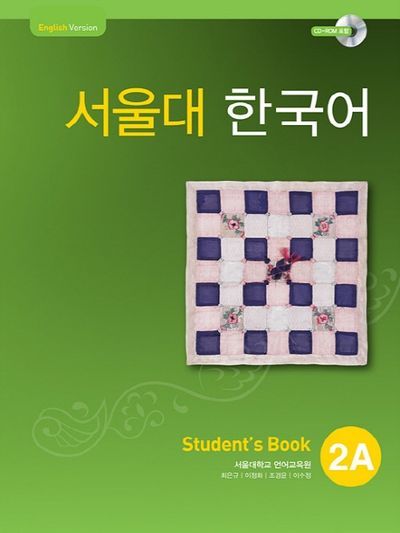
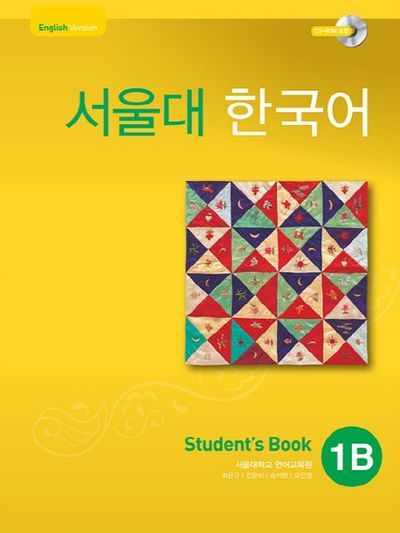

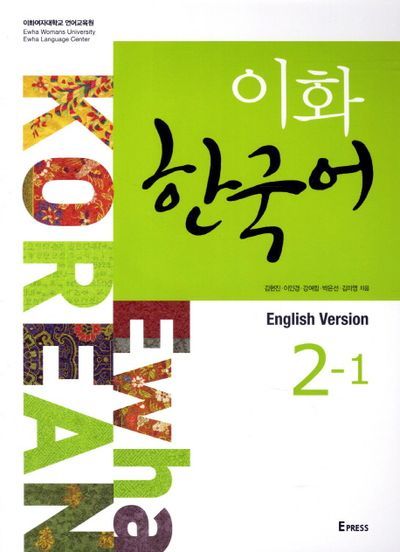




Part 2 link: https://www.tumblr.com/koreanstudygram/786568447228346368/interested-in-some-korean-books-part-2
15 notes
·
View notes
Text
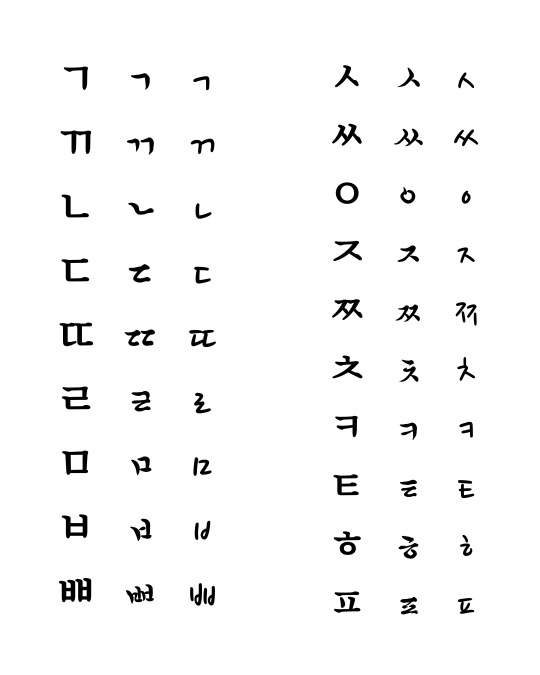
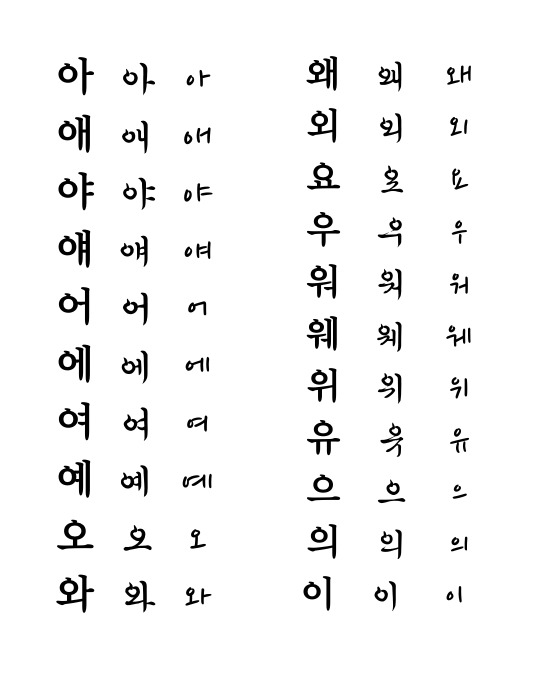
한글 (Hangeul)
The Korean Alphabet/Characters in 3 different fonts
#eps korea#korean language#studyblr#korean learner#korean learning#self study#한국어#language learner#공부#한글#hangeul
20 notes
·
View notes
Text
79 notes
·
View notes
Text
Quick tip: as silly as It sounds, watching kids show in the language you're learning helps a lot ! :D I mean, if they're meant to teach kids to speak their very first language, why wouldn't it help older people learn a new one?
If you want to get fluent you have to view it as starting from zero, the same way everyone started from zero when they learnt their mother/first language as kids! Good luck!
#language learning#language study#english language#free studies#french language#french studyblr#italian studyblr#korean language#korean learning#Language learning tips#Learning tips#Language learning#french learning#Italian learning#spanish learning#english learning#Portuguese learning#languages self learning#Learning tricks#language tips
27 notes
·
View notes
Text
PERSONAL PRONOUNS
2024년 8월 5일
안녕하세요 여러분!
Today we are going to learn personal pronouns, as well as when to use some suffixes to add to the name of the person we are going to talk to.
The blue ones are in the informal form and the purple ones are in the formal form. Always try to use the formal form when you start speaking and/or writing. If there is an X, that means there is no word to say that.
I = 나 / 저
You = 너 / X
He/She = 그 (he) or 그녀 (she) / 그분 (both)
We = 우리 / 저희
You = 너희 / X
They = 그들 (group of boys) or 그녀들 (group of girls) / 그분들 (all)
We only used 그분 or 그분들 when that person is not with us in the moment we talk about them.
How we can address someone who is our boss or someone who has a more power than us? There are words for this one, so we won't use any of the pronouns learnt today. For example: Boss (상사님), Teacher (선생님). That 님 means kind of "sir".
OTHER WAYS TO CALL PEOPLE:
If we don't know the person, we add -씨 at the end of their name: 송 민기씨.
If the person is our friend, we add -이 at the end of their name ONLY if ends with a consonant: 김강민이. This only works with korean names, don't do this with foreigner names.
If you want to call someone (a friend) who is a little far away from you, we will use -아 at the end of their name if ends with a consonant or -야 if ends with vowels: 신정근아 or 김준호야.
And that's all for today!
If you have any question, please, feel free to ask me !
#koreannook#korean langblr#korean language#korean learning#learn korean#learning korean#study korean#studying korean#korean studyblr#koreanblr#langblr#studyblr#korean personal pronouns#persona pronouns#한국어#한국어 공부#한국어 배우기#한국어 공부하기
77 notes
·
View notes
Text
some more words related through Hanja characters:
If you don't know what Hanja is, it refers to the Chinese-derived words of the Korean language. Pretty much half of Korean comes from originally Chinese words (and therefore will share pronunciation similarities with actual Chinese) and the rest is pure Korean.
Just like Latin and Greek is to English (e.g. aqua- hydro- indicate relation to 'water'), we can remember some Hanja to make semantic links between words in Korean.
The majority of Korean people's names have Hanja equivalents and could be written out in Chinese (sometimes required on official documents) and will be chosen by their parents based on the traditional semantic meaning. However, in the last few decades more Korean people are giving their kids pure Korean names with nice meanings such as 사랑, 보라, 하나, 하늘, 진주. More on Korean names in a future post!
Anyway, on with some semantic Hanja word links.
Marriage related words - 혼
결혼 - marriage
이혼 - divorce
약혼 - engagement (does the 약 part also seem familiar? It's the same 약 in 약속 - promise, and 예약 - appointment.)
기혼 - married (as in the person's status)
미혼 - unmarried, single
water related words - 수
수달 - otter
생수 - drinking/fresh water
수상 스키 - water ski (상 is a Hanja meaning 'above')
홍수 - flood
호수 - lake
school related words - 학 and 교
학교 - school
학생 - student
교복 - school uniform (your probably know what Hanbok is right? 한 - Korea 복 - clothing. That's the same 복.)
교육 - education
middle related words - 중
중국 - China (국 is the character used in country names)
중학교 - middle school
중급 - middle/intermediate level
중 - medium size (might see on a menu with portion options)
beauty related words - 미
미국 - the U.S.
미녀 - beautiful woman
미용실 - beauty salon/hairdressers
people related words - 인
인간 - human
~인 - person from ~ country (a Korean, a Brit, a German etc)
인생 - life
인기 - popularity
인사 - greeting
인삼 - ginseng (so called because the root resembles a person)
개인 - personal, private
주인 - owner
부인 - wife
female related words - 여/녀
여신 - goddess
미녀 - beautiful woman
마녀 - witch
그녀 - she
여성 - female
소녀 - girl (소 is another Hanja meaning small)
#cannot think of anymore rn its 10pm lol#korean study#korean learning#korean grammar#langblr#korean langblr#korean studyblr#korean vocab#hanja
34 notes
·
View notes
Text
Korean Emotions (part 1)
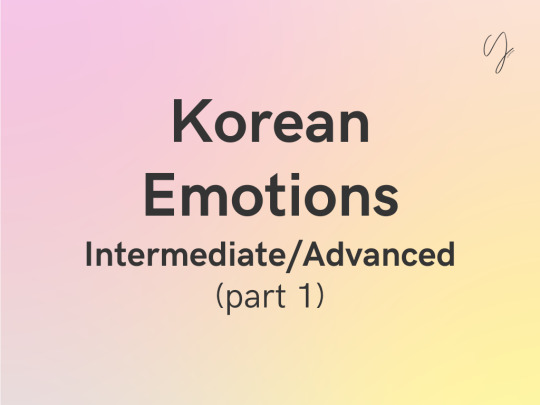
가뜬하다 (adj.) : refreshed; light-hearted 몸이나 마음이 가볍고 상쾌하다. Body or mind being light and refreshed. 예.) 가:너 오늘 기분이 굉장히 좋아 보인다? 나:과제를 다 끝냈더니 마음이 가뜬한 게 날아갈 것 같아.
가련하다 (adj.) : pitiful; poor; pathetic 마음이 아플 정도로 불쌍하다. Sadly sick or troubled. 예.) 직장에서 해고를 당하고 집에서 놀고 있는 형이 매우 가련하다.
가소롭다 (adj.) : ridiculous; absurd 비웃고 무시할 만하다. Deserving to be belittled and ignored. 예.) 형은 내 말을 형편없고 가소롭다는 듯이 들은 척도 안 했다.
가엾다 (adj.) : feeling pity 마음이 아플 정도로 불쌍하고 딱하다. Feeling heartfelt pity or sympathy for someone. 예.) 나는 자식들을 먹여 살리느라 평생을 고생하신 어머니가 가엾게 느껴졌다.
가증스럽다 (adj.) : despicable; detestable 다른 사람의 말이나 행동이 화가 날 정도로 몹시 밉다. Behavior or a remark being mean or hypocritical enough to upset others. 예.) 승규는 남들 앞에서만 착한 척하는 지수의 행동이 가증스러웠다.
가책 (n.) : admonishment; rebuke 자기나 남의 잘못을 꾸짖음. The act of scolding oneself or others for doing something wrong. 예.) 나는 친구를 속이고 한동안 심한 죄책감과 가책에 시달렸다.
갈등하다 (v.) : be ambivalent 마음속에서 어떻게 할지 결정을 못 한 채 괴로워하다. To experience agony and inner struggle over what to decide. 예.) 나는 시험 준비를 할까 좋아하는 드라마를 볼까 한참을 갈등했다.
감개 (n.) : deep emotion 지난 일이 생각나서 마음속에서 솟아오르는 감동이나 느낌. One's state of feeling deeply moved and getting emotional from one's memory of past events. 예.) 작가는 몇 년 동안 고생하면서 쓴 소설이 출판된 것을 보고 깊은 감개에 젖었다.
감개무량하다 (adj.) : touched deeply; emotional 지난 일이 생각나서 마음속에서 느끼는 감동이 매우 크다. Feeling deeply moved and getting emotional from one's memory of past events. 예.) 상을 받은 여배우는 감개무량한 표정으로 소감을 이야기했다.
감격하다 (v.) : be touched 마음에 깊이 느끼어 매우 감동하다. To be deeply moved and touched by someone or something. 예.) 대회에서 일 등을 한 선수는 감격한 표정으로 소감을 말하였다.
감동하다 (v.) : be moved; be touched 강하게 느껴 마음이 움직이다. To be touched by something very deeply. 예.) 나는 어려운 환경에서도 꿈을 잃지 않고 살아가는 청년의 이야기를 듣고 무척 감동했다.
감명 (n.) : impression 잊을 수 없는 큰 감동을 느낌. 또는 그런 감동. A state of being deeply touched, or such a feeling. 예.) 지수는 가족의 사랑을 그린 영화를 보고 감명을 받아 눈물을 흘렸다.
감미롭다 (adj.) : mellow; sweet 달콤한 느낌이 있다. A story, voice, song, etc., sounding sweet. 예.) 김 감독은 사랑에 빠진 남녀의 행복하고 감미로운 사랑 이야기를 영화로 만들었다.
감복하다 (v.) : be impressed; be moved 진심으로 크게 감동하다. To be impressed deeply and sincerely. 예.) 공연이 끝난 후 관객들은 배우들의 훌륭한 연기에 감복해 박수를 쳤다.
감탄하다 (v.) : admire; wonder 마음속 깊이 크게 느끼다. To feel strongly and deeply about something. 예.) 관객들은 서커스 단원의 공중 묘기에 감탄하여 박수를 쳤다.
감회 (n.) : reminiscence 마음속에 일어나는 지난 일에 대한 생각이나 느낌. Thoughts or feelings on the past. 예.) 아버지는 돌아가신 할머니의 사진을 보며 감회에 젖으셨다.
개탄하다 (v.) : deplore; lament 분하거나 안타깝게 여겨 탄식하다. To sigh at something out of anger or regret. 예.) 나는 경솔한 말 한마디로 사랑하는 여자를 떠나보낸 뒤 자신이 어리석었다고 개탄했다.
거부감 (n.) : sense of refusal 어떤 것을 받아들이고 싶지 않은 느낌. The feeling of not wanting to accept something. 예.) 이 책은 고전을 청소년들의 눈높이에 알맞게 개작하여 그들이 거부감을 갖지 않고 쉽게 읽을 수 있다.
걱정하다 (v.) : worry; be worried; be concerned 좋지 않은 일이 있을까 봐 두려워하고 불안해하다. To feel fearful and anxious that something bad might happen. 예.) 그는 다가올 시험에 대해 항상 걱정했다.
겁나다 (v.) : be afraid; be scared 무서워하거나 두려워하는 마음이 들다. To feel afraid or scared of something. 예.) 나는 교통사고를 당한 이후 차 타는 것이 겁난다.
격노하다 (v.) : be furious; be enraged 몹시 화를 내다. To be extremely angry. 예.) 강제로 해고된 직원들이 회사에 격노하여 복직을 요구하는 시위를 벌였다.
격분하다 (v.) : be furious; be enraged 몹시 화를 내다. To be extremely angry. 예.) 사기 피해자들이 격분하여 사기꾼의 멱살을 잡고 분통을 터뜨렸다.
격정 (n.) : passion 강렬하고 갑자기 생기는 참기 어려운 감정. A powerful, sudden burst of uncontrollable emotion. 예.) 나는 알 수 없는 격정으로 가슴이 꽉 막히는 것 같았다.
겸연쩍다 (adj.) : embarrassed; abashed; sheepish; awkward 쑥스럽거나 미안하여 어색하다. Awkward due to being shy or sorry. 예.) 나는 짝사랑했던 그를 마주 대하기가 겸연쩍어 자리를 옮겼다.
sources:
KOR-EN Basic Korean Dictionary through Naver Dictionary. National Institute of Korean Language. Accessed 14 July 2024. <https://en.dict.naver.com/#/main>.
Park, In-Jo., & Min, Kyung-Hwan (2005). Making a List of Korean Emotion Terms and Exploring Dimensions Underlying Them. Korean Journal of Social and Personality Psychology, 19(1), 109-129.
#한국어#한국어 공부#공부계#한국어 공부하기#한국어 배우기#korean#learning korean#study korean#studyblr#new vocab#korean learning#learning#learn english#learnlanguages#learnsomethingneweveryday#english#english language#language stuff#korean vocabulary#korean language#korean english
105 notes
·
View notes